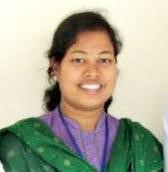Pharmaceutical Engineering Practical
Course Attendees
Still no participant
Course Reviews
Still no reviews
Code(Credit):BPHL2104(0-2-0)
Course Objectives
This course is designed to impart a fundamental knowledge on the art and science of various unit operations used in pharmaceutical industry.
Learning Outcomes
•To know various unit operations used in Pharmaceutical industries.
•To understand the material handling techniques.
•To perform various processes involved in pharmaceutical manufacturing
process.
•To carry out various test to prevent environmental pollution.
•To appreciate the various preventive methods used for corrosion control
in Pharmaceutical industries.
Course Syllabus
1. Determination of radiation constant of brass, iron, unpainted and painted glass.
2.Steam distillation – To calculate the efficiency of steam distillation.
3.To determine the overall heat transfer coefficient by heat exchanger.
4.Construction of drying curves (for calcium carbonate and starch).
5.Determination of moisture content and loss on drying.
6.Determination of humidity of air – i) From wet and dry bulb temperatures –use of Dew point method.
7.Description of Construction working and application of Pharmaceutical Machinery such as rotary tablet machine, fluidized bed coater, fluid energy mill, de humidifier.
8.Size analysis by sieving – To evaluate size distribution of tablet granulations – Construction of various size frequency curves including arithmetic andlogarithmic probability plots.
9.Size reduction: To verify the laws of size reduction using ball mill and determining Kicks, Rittinger’s, Bond’s coefficients, power requirement and critical speed of Ball Mill.
10.Demonstration of colloid mill, planetary mixer, fluidized bed dryer, freeze dryer and such othermajor equipment.
11.Factors affecting Rate of Filtration and Evaporation (Surface area, Concentration and Thickness/ viscosity
12.To study the effect of time on the Rate of Crystallization.
13.To calculate the uniformity Index for given sample by using Double Cone Blender.
Session Plan
EXPERIMENT-1
1.Determination of radiation constant of brass, iron, unpainted and painted glass.
EXPERIMENT- 2
2.Steam distillation – To calculate the efficiency of steam distillation.
EXPERIMENT-3
3.To determine the overall heat transfer coefficient by heat exchanger.
EXPERIMENT- 4
4.Construction of drying curves (for calcium carbonate and starch).
EXPERIMENT- 6
6.Determination of humidity of air – i) From wet and dry bulb temperatures –use of Dew point method.
EXPERIMENT- 7
7.Description of Construction working and application of Pharmaceutical Machinery such as rotary tablet machine, fluidized bed coater, fluid energy mill, de humidifier.
EXPERIMENT- 8
8.Size analysis by sieving – To evaluate size distribution of tablet granulations – Construction of various size frequency curves including arithmetic andlogarithmic probability plots.
EXPERIMENT- 9
9.Size reduction: To verify the laws of size reduction using ball mill and determining Kicks, Rittinger’s, Bond’s coefficients, power requirement and critical speed of Ball Mill.
EXPERIMENT- 10
10.Demonstration of colloid mill, planetary mixer, fluidized bed dryer, freeze dryer and such othermajor equipment.
EXPERIMENT- 11
11.Factors affecting Rate of Filtration and Evaporation (Surface area, Concentration and Thickness/ viscosity
EXPERIMENT- 12
12.To study the effect of time on the Rate of Crystallization.
EXPERIMENT- 13
13.To calculate the uniformity Index for given sample by using Double Cone Blender.
Case Studies
Case Studies
Case Studies
Case Studies
Our Main Teachers

Teacher


Recent Comments